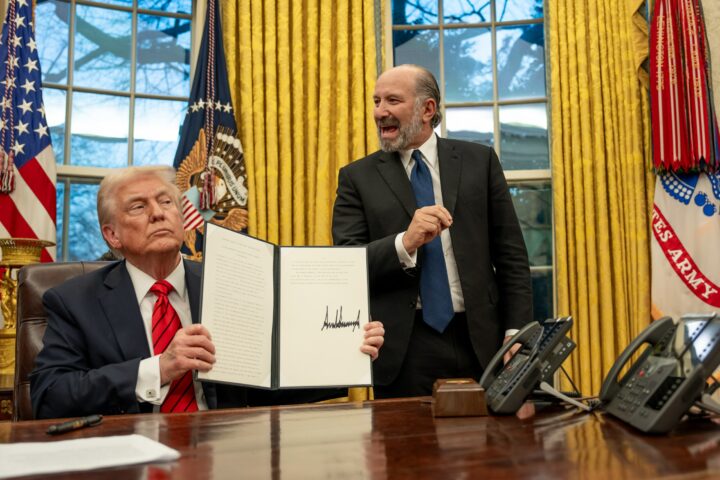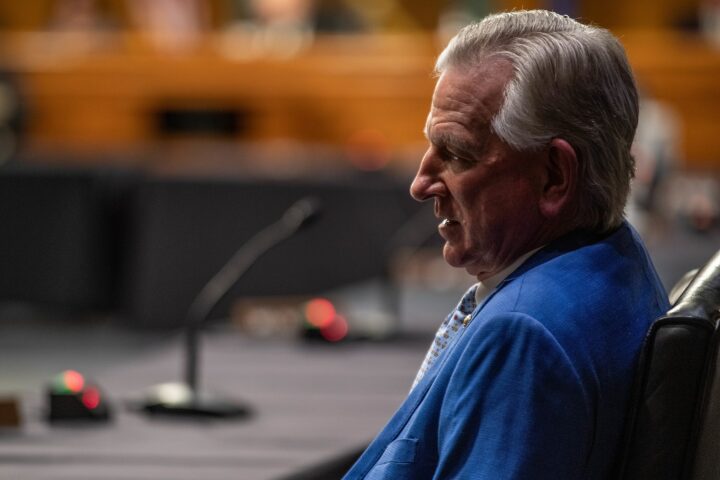Former House Speaker Nancy Pelosi of California, reportedly joined by Representative Kevin Mullin, has suggested that state and local authorities could arrest federal immigration agents if they violate California law while carrying out federal immigration enforcement — a statement that has drawn sharp criticism from conservatives who view it as a direct challenge to federal authority.
In a joint statement issued this week, Pelosi and Mullin condemned reports of what they called a “planned mass immigration raid” in the Bay Area. “Reports of a planned mass immigration raid in the Bay Area are an appalling abuse of law enforcement power,” the two Democrats wrote. “Broad sweeps that target families and terrorize law-abiding residents betray our nation’s values and waste resources that should focus on real threats to public safety.”
The statement went further, asserting that California’s so-called sanctuary laws could be used to protect residents from federal agents carrying out immigration enforcement operations. “It is important to note that California law protects communities and prevents federal agents from taking certain actions here that we have witnessed in other states,” they said. “While the President may enjoy absolute immunity courtesy of his rogue Supreme Court, those who operate under his orders do not.”
Pelosi and Mullin concluded by suggesting that local law enforcement could detain federal officers who run afoul of state statutes. “Our state and local authorities may arrest federal agents if they break California law — and if they are convicted, the President cannot pardon them.”
San Francisco District Attorney Brooke Jenkins has publicly supported exploring such measures, saying her office could potentially bring charges against immigration agents for alleged misconduct.
Jenkins said she began researching the issue after considering what powers her office could exercise over federal personnel. “I had lead time to think about what authority I have and what I can do,” Jenkins said in a recent interview. “This is something I felt very strongly about, and I had my office research it.”
Jenkins said her office could review body-camera or public footage of enforcement incidents and, if evidence of excessive force is found, seek arrest warrants for the agents involved.
She also acknowledged the practical and legal challenges, including the use of masks or lack of visible identification by federal officers. A new state law banning masked agents is scheduled to take effect in January, though it is already facing legal challenges.
Legal scholars have cast doubt on the legality of such threats. Erwin Chemerinsky, dean of the University of California, Berkeley School of Law, noted that state prosecutions of federal agents acting in their official capacity would likely not withstand judicial scrutiny. “As long as the ICE agents are acting legally, the state can’t prosecute them and hold them liable, even if it dislikes what they’re doing,” Chemerinsky said.
The idea of arresting federal immigration agents has surfaced before. U.S. District Judge Jeffrey Cummings in Chicago previously barred ICE officers from arresting illegal immigrants inside or near a Cook County courthouse unless they had a judicial warrant, drawing criticism from federal officials who argued that local interference jeopardized national immigration enforcement.
While Pelosi’s comments may resonate with progressive voters in her home state, critics see them as another example of California’s defiance of federal immigration law — one that could ignite a constitutional confrontation between state and federal authorities.
[READ MORE: Vance Warns Israel Against West Bank Annexation, Calls Knesset Vote “Very Stupid”]








